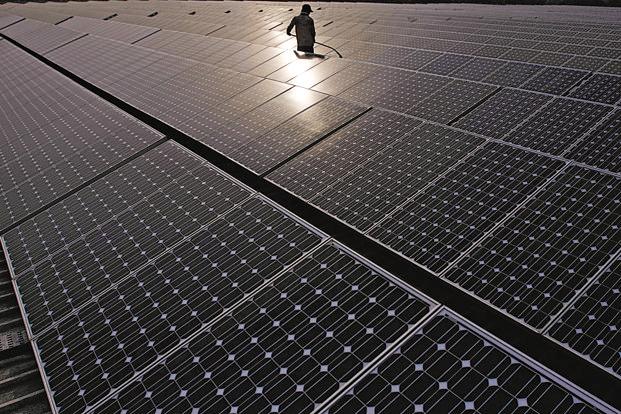
Geneva: India on Wednesday appealed to the World Trade Organization’s highest court—the Appellate Body—to dismiss a lower panel ruling that effectively struck down the government’s local content requirements for solar cells and modules for promoting renewable energy following a dispute raised by the US.
New Delhi appealed against several issues of the panel concerning the interpretation of Article III: 8 (a) dealing with government procurement and Article XX (d) and XX (J) of general exceptions under which domestic content requirements were justified.
In a separate development, the US trade representative cautioned India that a fresh trade dispute by New Delhi against the alleged local content requirements and subsidies provided by several US states and supported by US federal administration will not be helpful, according to PV Tech, an American publication.
“Tit-for-tat WTO filings will not support our (US-India) shared efforts to deepen our bilateral economic ties, nor are they a responsible use of WTO resources,” a US spokesperson told PV Tech on 19 April.
For some time now, the Narendra Modi government has been weighing the pros and cons of launching a fresh dispute against the US which provides subsidies worth tens of billions of dollars for promoting solar energy. Several American states also insist on strict domestic content requirements for encouraging renewable energy industries.
Before the WTO panel, India had justified the domestic content requirements by pointing to its international obligations. India invoked the United Nations Framework Convention on Climate Change (UNFCC) as part of its defence to continue with the domestic content requirements. India had argued that it had an “obligation to take steps to achieve energy security, mitigate climate change, and achieve sustainable development, and that this includes steps to ensure the adequate supply of clean electricity, generated from solar power, at reasonable prices.”
New Delhi maintained that by relying heavily on solar energy, the dependence on oil and coal will be reduced. India maintained that it was “necessary to ensure that there is an adequate reserve of domestic manufacturing capacity for solar cells and modules in case there is a disruption in supply of foreign cells and modules.”
But the panel concurred with the US that the domestic content measures for solar cells and modules cannot be justified under the provisions cited by India. The three-member panel chaired by the former New Zealand trade envoy David Walker had pronounced that the domestic content requirements implemented by India violated New Delhi’s obligations under the TRIMS (trade-related investment measures) agreement and GATT Article III:4.
New Delhi also sought to justify its solar content requirements by recourse to the so-called “government procurement curve-out” under GATT Article III: 8 (a). This provision enables a WTO member to do away with national treatment obligations (treating imports on par with domestically produced like products).
In its appeal before the Appellate Body, India has argued that the panel erred in its interpretation of Article III: 8 (a) and Articles XX (d) and XX (J), according to analysts familiar with the development.
“If India appeals, the United States will explain that the WTO panel’s findings are consistent with WTO rules,” the USTR spokesperson told PV Tech. “We are confident that the WTO Appellate Body would affirm the panel’s findings and recommend that India withdraw the domestic content requirement (DCR) at issue in this dispute,” the USTR spokesperson maintained.
The better response from India, the USTR spokesperson told PV Tech, is not to file additional cases but drop its DCR entirely, and find alternative measures to promote its domestic solar manufacturing.
The Appellate Body has three months in which to rule on India’s challenge.